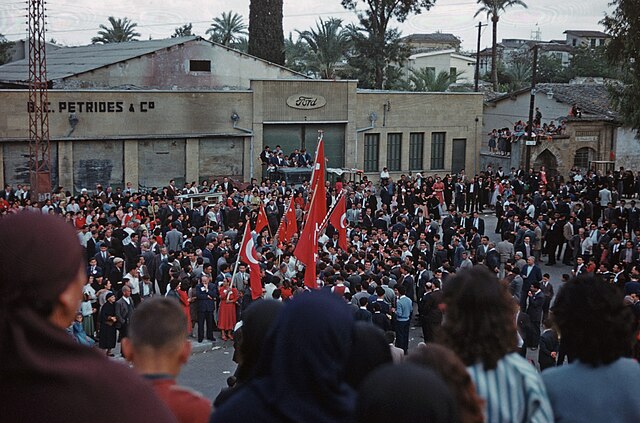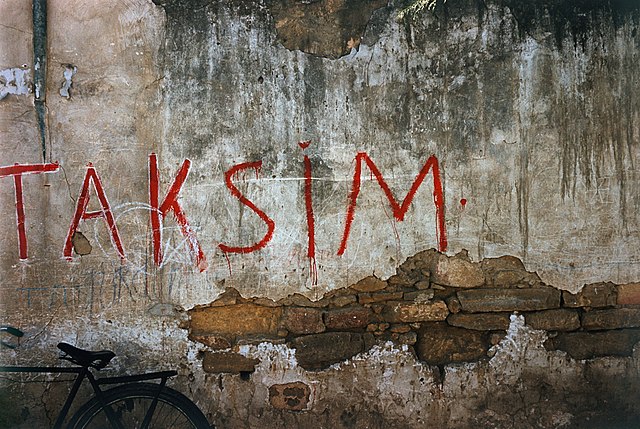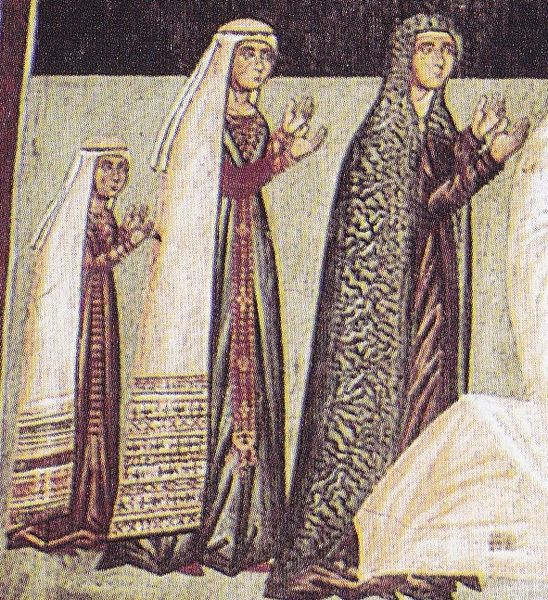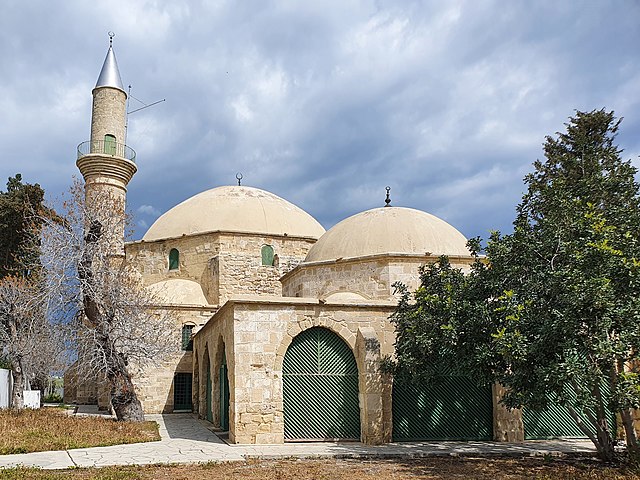The Cyprus problem, also known as the Cyprus conflict, Cyprus issue, Cyprus dispute, or Cyprus question, is an ongoing dispute between the Greek Cypriot community which runs the Republic of Cyprus and the Turkish Cypriot community in the north of the island, where troops of the Republic of Turkey are deployed. This dispute is an example of a protracted social conflict. The Cyprus dispute's causes stem from ethnic Greek nationalist ideology, Greek-Cypriot sentiment, the Megali Idea and Enosis, and some of the ethnic Turkish peoples' desire for the partition of the island of Cyprus through Taksim as a means of protection of their people by what they considered to be the threat of Greek-Cypriots.
A Greek Cypriot demonstration in the 1930s in favour of Enosis (union) with Greece
Turkish rally in Nicosia in January 1958
"TAKSİM" (division) graffiti on a wall in Nicosia in the late 1950s
The "Green Line" in Nicosia, Cyprus.
Greek Cypriots are the ethnic Greek population of Cyprus, forming the island's largest ethnolinguistic community. According to the 2011 census, 659,115 respondents recorded their ethnicity as Greek, forming almost 99% of the 667,398 Cypriot citizens and over 78% of the 840,407 total residents of the area controlled by the Republic of Cyprus. These figures do not include the 29,321 citizens of Greece residing in Cyprus, ethnic Greeks recorded as citizens of other countries, or the population of Northern Cyprus.
King Evagoras I of Salamis, Cyprus
Byzantine princess Helena Palaiologina, Queen consort of Cyprus
The Hala Sultan Tekke mosque, built in 1817, was one of many landmarks constructed by the Ottoman Turks in Cyprus.
The Cypriot Statue of Liberty








